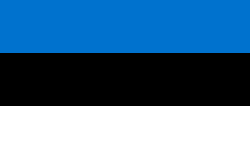This article includes a list of general references, but it lacks sufficient corresponding inline citations .(February 2022) |
| Estonia at the 1928 Summer Olympics | |
|---|---|
 | |
| IOC code | EST |
| NOC | Estonian Olympic Committee |
| in Amsterdam | |
| Competitors | 20 (men) in 5 sports |
| Flag bearer | Gustav Kalkun |
| Medals Ranked 16th |
|
| Summer Olympics appearances (overview) | |
| Other related appearances | |
Estonia competed at the 1928 Summer Olympics in Amsterdam, Netherlands.
